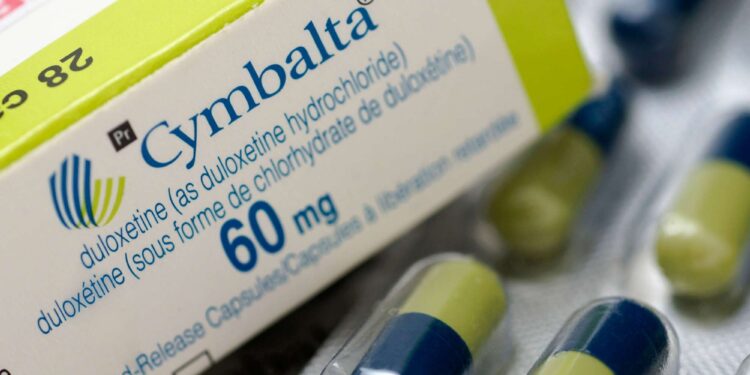:max_bytes(150000):strip_icc():format(jpeg)/Duloxetine-102224-1-0b9a84e5d2bf4cb1898e49258842344b.jpg)
The U.S. Food and Drug Administration has recalled thousands of bottles of the antidepressant Duloxetine for potentially cancer-causing chemicals above the acceptable limit set by the FDA, per the federal agency’s Oct. 11 enforcement report. The drug is sold under the brand name Cymbalta.
The Duloxetine Delayed-Release Capsules’ voluntary recall began on Oct. 10 after the FDA deemed the medication the second-highest risk classification. Over 7,100 bottles of Duloxetine were recalled, including 500 delayed-release 20mg capsules. The lot number is 220128, and the expiration date is 12/2024, per the FDA report.
It is a Class II recall, meaning that the drug could cause “temporary or medically reversible adverse health consequences,” according to the FDA.
The Towa Pharmaceutical Europe-produced drug is used to manage depression, anxiety, and nerve pain, such as fibromyalgia or arthritis, per WebMD.
The drug works by increasing levels of mood-boosting chemicals in the brain, and then at the same time, N-nitroso-duloxetine chemicals can also be created, according to Newsweek.
The latter chemical is part of the nitrosamines group of chemicals, commonly found in water and food products. There could be a risk of developing cancer if found in higher concentrations and people are exposed to them for extended periods, so the FDA has strict limits on its concentrations.
Dhiraj Singh/Bloomberg via Getty
“There are multiple reasons why nitrosamines can be present in drugs. FDA found the source of nitrosamines can be related to the drug’s manufacturing process or its chemical structure or even the conditions in which they are stored or packaged,” the FDA said in a statement, per Newsweek. “As foods and drugs are processed in the body, nitrosamines can also be formed. FDA continues to test and research possible sources for drugs found to contain nitrosamines.”
Never miss a story — sign up for PEOPLE’s free daily newsletter to stay up-to-date on the best of what PEOPLE has to offer, from celebrity news to compelling human interest stories.
“Patients taking prescription medications with potential nitrosamine impurities should not stop taking their medications,” the FDA added. “Patients should talk to their health care professionals about concerns and other treatment options.”
“The agency is working to determine the source of these impurities and will keep the public informed,” the federal agency stated.






